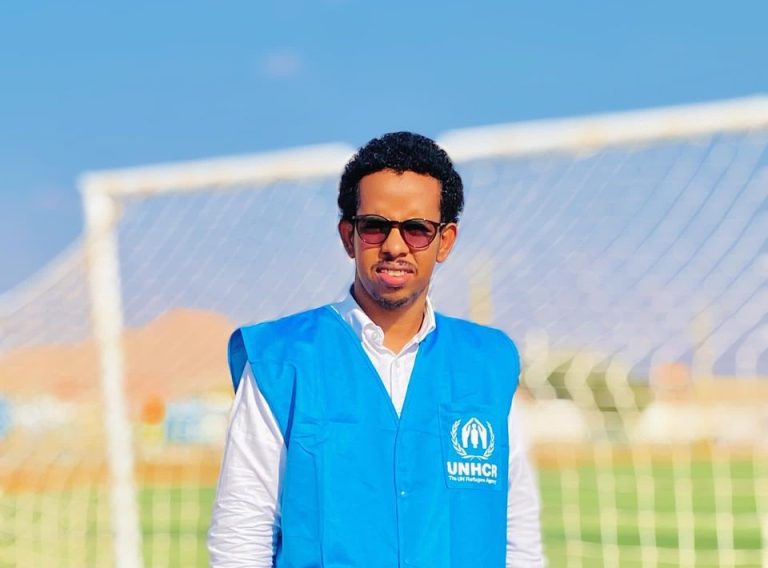Maja Kuna-Parrish is a Techno-Pedagogical Engineer at the International Committee of the Red Cross (ICRC). She is in charge of developing learning materials for a diverse and international workforce of over 18,000 people.
Hi Maja, can you tell us a bit about your role? What exactly is a Techno-Pedagogical Engineer?
A Techno-pedagogical engineer (TPE) brings together expertise on educational technology, pedagogy and adult learning. A TPE’s typical working day varies quite a bit, but let me try and give you a brief example. Let’s say I have been tasked with providing a new learning solution for ICRC managers that allows them to include risk management in their projects and programmes.
I would first start by setting up a meeting with our expert on risk management to discuss this specific learning need. Once the objectives are refined with the expert and other stakeholders, and the content and target audience are analysed, I would then propose a learning solution to help achieve these objectives. This could involve reusing existing learning resources or a producing entirely new ones. Depending on the objective, a learning resource could be a video, an e-learning module, a quiz, visuals for a virtual classroom, or a whole course which includes all of these elements.
I would then spend the following weeks supporting the project sponsor to put the new solution in place, pilot it, and evaluate it along the way. Consequently, a TPE’s work often involves reviewing existing learning resources, working with a number of different stakeholders, including internal or external e-learning and multimedia development teams, as well as the ICRC’s Learning Management System team.
What kind of learning opportunities does ICRC offer its staff?
The ICRC’s suite of learning opportunities expands every year. We offer a few transversal programmes, such as staff integration and management programmes, as well as security courses. In addition, staff members can find courses specific to their profession, such as courses on Economic Security, Water and Habitat, Health or Logistics.
Formats include face-to-face, online or blended courses and stand-alone learning resources are available on demand at any time through our iLearn platform. In addition, ICRC supports the professional development of their staff through a range of external learning opportunities.
What kind of learning is in the most demand? Are you seeing greater engagement with online learning?
I would say that “just-in-time” learning – learning available in a format that responds to immediate needs – is getting more and more popular, and online learning is the best way to meet this demand. However, changing your mindset from traditional classroom to online learning doesn’t come naturally to everyone. Becoming an online learner takes practice, adequate support and infrastructure. Luckily our Learning and Development division is now more equipped to provide this support.
Today, our employees are more aware of the importance of building their own capacities, and therefore seek to acquire new skills whenever possible. That being said, individuals do continue to specifically seek certified learning in order to build their CVs. This explains the growing tendency to look for learning that provides both.
ICRC has recently been using some online learning developed by the Humanitarian Leadership Academy. Can you tell us what you’ve used it for?
One of the first tasks of a TPE is to determine a learning solution, which, as previously mentioned, could involve repurposing an existing learning resource. The Kaya Connect platform provided by the Academy has been a great source of both content and inspiration for us. An example of a subject that we found very well covered in the resources shared by the Academy was their e-learning module on Innovation. This module has since been adapted and used by us in the pilot of our new management programme. What we valued the most here was the humanitarian angle presented in the module. The same is true for the Academy’s e-learning module on Accountability to Affected Populations.
Our goal at ICRC is to build a relevant learning experience for our colleagues and it’s therefore very important for us to focus on examples close to the humanitarian world. The Academy allowed us to not only repurpose their existing learning resources catered to humanitarian workers, but also to adapt them to the specific ICRC context. Contextualisation really helped us increase the impact of our management programme. We are also interested in modules on result-based management, coaching and stress management. As the Academy continues to add new content and we keep developing training, I am sure there will be many more useful learning resources on Kaya that will capture our attention.
The Internet is full of resources, but what we propose to our learners must meet our quality standards. What we have discovered on Kaya not only meets these standards but is also adapted to the humanitarian audience and globally aligned with the messages we want to promote.”
If you weren’t able to access and adapt these resources, what would it mean for ICRC? i.e. Would you end up being able to develop the resources yourself or would budget constraints prevent it?
Budget is definitely one of the factors that inspires us to look for existing learning resources. We are always looking to ensure that we use our funds in the most efficient way.
Another key factor is time. ICRC operates in an ever-changing environment which frequently triggers new learning needs. We need to be able to quickly meet these needs, but developing new resources takes time, so why not benefit from what others have already created?
The third factor is quality. The Internet is full of resources, but what we propose to our learners must meet our quality standards. What we have discovered on Kaya not only meets these standards but is also adapted to the humanitarian audience and globally aligned with the messages we want to promote. And if at any point we want to refine the messages, the Academy also allows us to do so.
What would you say are the greatest challenges surrounding humanitarian learning today?
Until very recently, humanitarian learning offered by some organisations almost exclusively focused on the fields of expertise needed in the humanitarian field. Unfortunately, this narrow focus excluded a number of individuals with specific personal and professional development needs. One of today’s biggest challenges is to design learning paths that take into consideration both the skills that learners want to develop, in addition to the skills that organisations are looking for. Striking a careful balance between these two goals is vital to achieving organisational objectives, and also encourages staff members to stay on board and feel motivated.
On a technical level, accessibility remains a huge challenge. There is a lack of proper IT tools in a number of the most remote areas where we work. These areas where internet availability is low, are often the areas of most need when it comes to accessing humanitarian learning, so alternative and innovative solutions are often required.
Finally, humanitarian workers need to be able to respond rapidly in complex and fast-changing environments. In order to support our colleagues in the field it is essential that we are able to provide learning in a timely fashion. We’re always looking for better, faster ways to provide learning solutions.
We’ve started off with the basics such as the Core Humanitarian Standard (CHS), the humanitarian principles, and we hope to gradually move on and introduce these principles to other groups in the community, allowing more people to use our spaces and to learn./,
What can organisations like the Academy do to support the sector to overcome these challenges?
The Academy’s services are incredibly practical as they provide a higher level of accessibility through online/offline learning solutions as well as a multitude of languages options (English, French, Arabic). Language options are important as they allow a considerably larger number of staff to widen their learning scope. Out of our 18,000 employees, not everyone has the same level of English or French and some might not feel comfortable with learning materials we currently have available. Offering learning materials in Spanish and Russian, among other languages, help us reach and support even more of our team members.
The Academy could also have a role in advising organisations on how to create learning tools and resources that could serve both organisational and individual objectives. While organisations such as the ICRC are often objective-driven and mostly focused on results, the Academy may have a broader view on more inclusive practices in the realm of learning.
We greatly appreciate the quality and openness of your service and hope that you are able to continue providing these incredible resources for many years to come.



